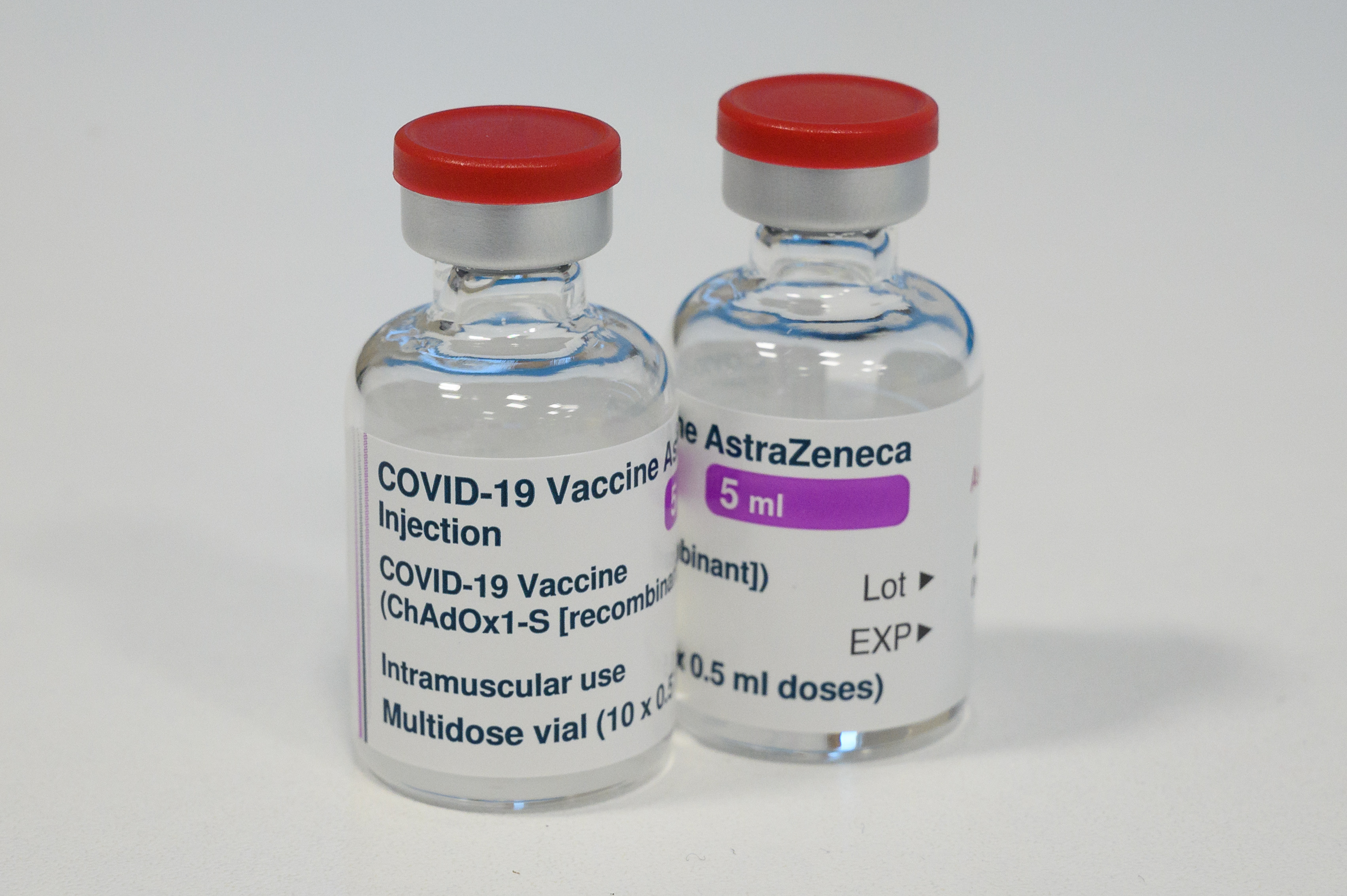AstraZeneca says its COVID-19 vaccine is 79 percent effective in large U.S. trial


A free daily email with the biggest news stories of the day – and the best features from TheWeek.com
You are now subscribed
Your newsletter sign-up was successful
AstraZeneca and Oxford University said Monday that their COVID-19 vaccine proved to be 79 percent effective against symptomatic illness and 100 percent effective at preventing serious COVID-19 cases or hospitalization in a U.S. trial involving more than 30,000 people. The vaccine, tested on 32,559 people 18 and older was effective among all age groups and demographics, including 80 percent effective with participants 65 and older.
The U.S. trial's independent safety monitors, aided by an outside neurologist, specifically reviewed the trail data for increased risk of severe blood clotting, following reports of vaccinated people in Europe suffering from cerebral venous sinus thrombosis. The review found no increased risk of thrombosis in the 21,583 volunteers who received at least one dose of the vaccine; the other participants were given a placebo.
A YouGov poll published Monday found that a growing number of adults in Spain, Germany, France, and Italy believe the AstraZeneca vaccine is unsafe, following a brief suspension of the vaccine in those countries last week. They began using the vaccine again after the European Medicines Agency and World Health Organization affirmed that AstraZeneca's vaccine is safe and effective.
The Week
Escape your echo chamber. Get the facts behind the news, plus analysis from multiple perspectives.

Sign up for The Week's Free Newsletters
From our morning news briefing to a weekly Good News Newsletter, get the best of The Week delivered directly to your inbox.
From our morning news briefing to a weekly Good News Newsletter, get the best of The Week delivered directly to your inbox.
Public confidence in this vaccine, developed by Oxford researchers, is especially important for the global vaccination effort. The vaccine is already the most-used shot in many countries, and largely because of its price — about $4 a dose — and ability to be stored in a normal refrigerator, it is central to the efforts to vaccinate the developing world.
The U.S. has also ordered 300 million doses, though the Food and Drug Administration has not yet given it emergency use authorization. AstraZeneca said Monday it will submit the full results of its U.S. trial to the FDA and for peer review to be published in a journal.
A free daily email with the biggest news stories of the day – and the best features from TheWeek.com
Peter has worked as a news and culture writer and editor at The Week since the site's launch in 2008. He covers politics, world affairs, religion and cultural currents. His journalism career began as a copy editor at a financial newswire and has included editorial positions at The New York Times Magazine, Facts on File, and Oregon State University.
-
 5 blacked out cartoons about the Epstein file redactions
5 blacked out cartoons about the Epstein file redactionsCartoons Artists take on hidden identities, a censored presidential seal, and more
-
 How Democrats are turning DOJ lemons into partisan lemonade
How Democrats are turning DOJ lemons into partisan lemonadeTODAY’S BIG QUESTION As the Trump administration continues to try — and fail — at indicting its political enemies, Democratic lawmakers have begun seizing the moment for themselves
-
 ICE’s new targets post-Minnesota retreat
ICE’s new targets post-Minnesota retreatIn the Spotlight Several cities are reportedly on ICE’s list for immigration crackdowns
-
 TikTok secures deal to remain in US
TikTok secures deal to remain in USSpeed Read ByteDance will form a US version of the popular video-sharing platform
-
 Unemployment rate ticks up amid fall job losses
Unemployment rate ticks up amid fall job lossesSpeed Read Data released by the Commerce Department indicates ‘one of the weakest American labor markets in years’
-
 US mints final penny after 232-year run
US mints final penny after 232-year runSpeed Read Production of the one-cent coin has ended
-
 Warner Bros. explores sale amid Paramount bids
Warner Bros. explores sale amid Paramount bidsSpeed Read The media giant, home to HBO and DC Studios, has received interest from multiple buying parties
-
 Gold tops $4K per ounce, signaling financial unease
Gold tops $4K per ounce, signaling financial uneaseSpeed Read Investors are worried about President Donald Trump’s trade war
-
 Electronic Arts to go private in record $55B deal
Electronic Arts to go private in record $55B dealspeed read The video game giant is behind ‘The Sims’ and ‘Madden NFL’
-
 New York court tosses Trump's $500M fraud fine
New York court tosses Trump's $500M fraud fineSpeed Read A divided appeals court threw out a hefty penalty against President Trump for fraudulently inflating his wealth
-
 Trump said to seek government stake in Intel
Trump said to seek government stake in IntelSpeed Read The president and Intel CEO Lip-Bu Tan reportedly discussed the proposal at a recent meeting
